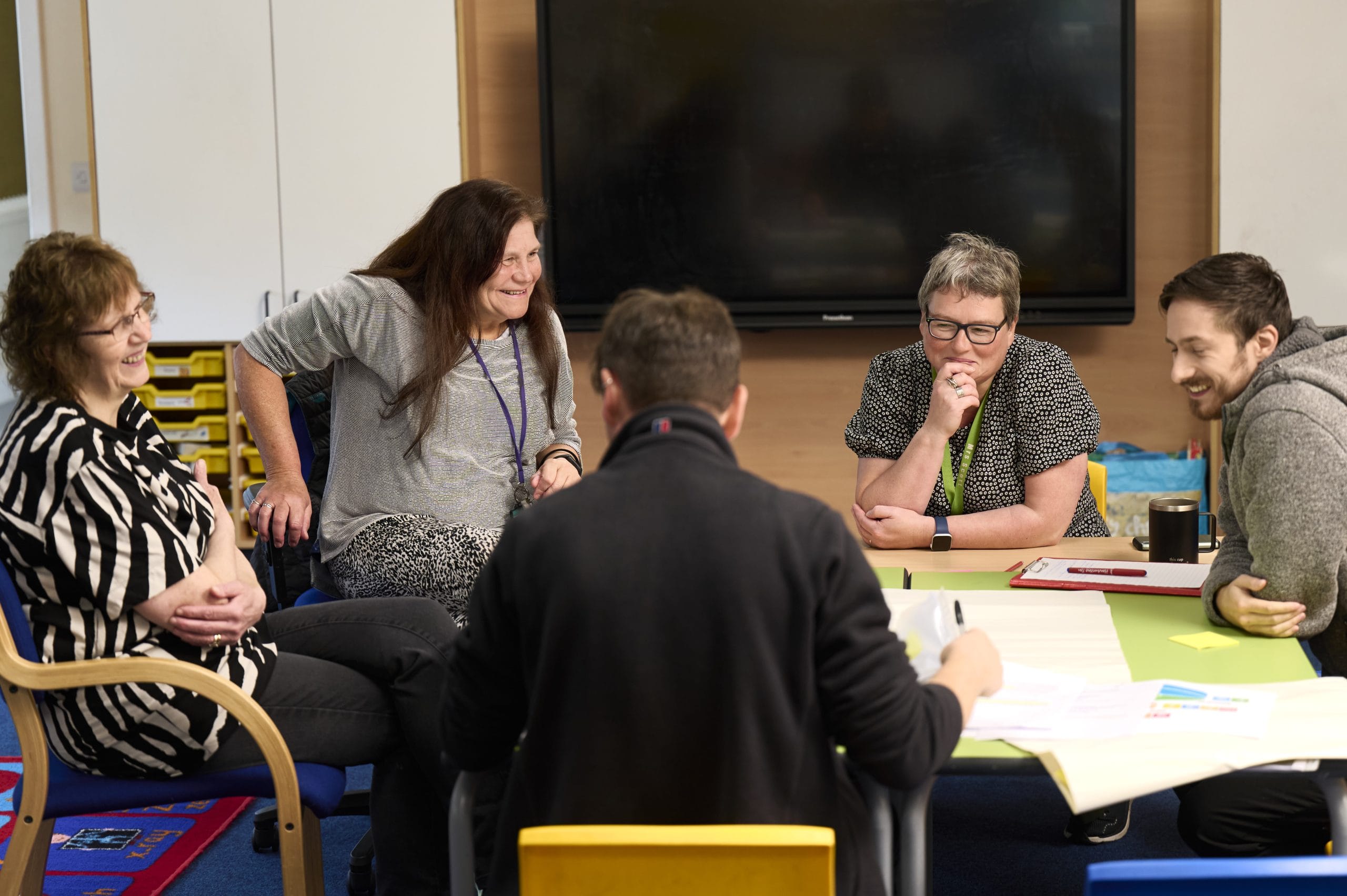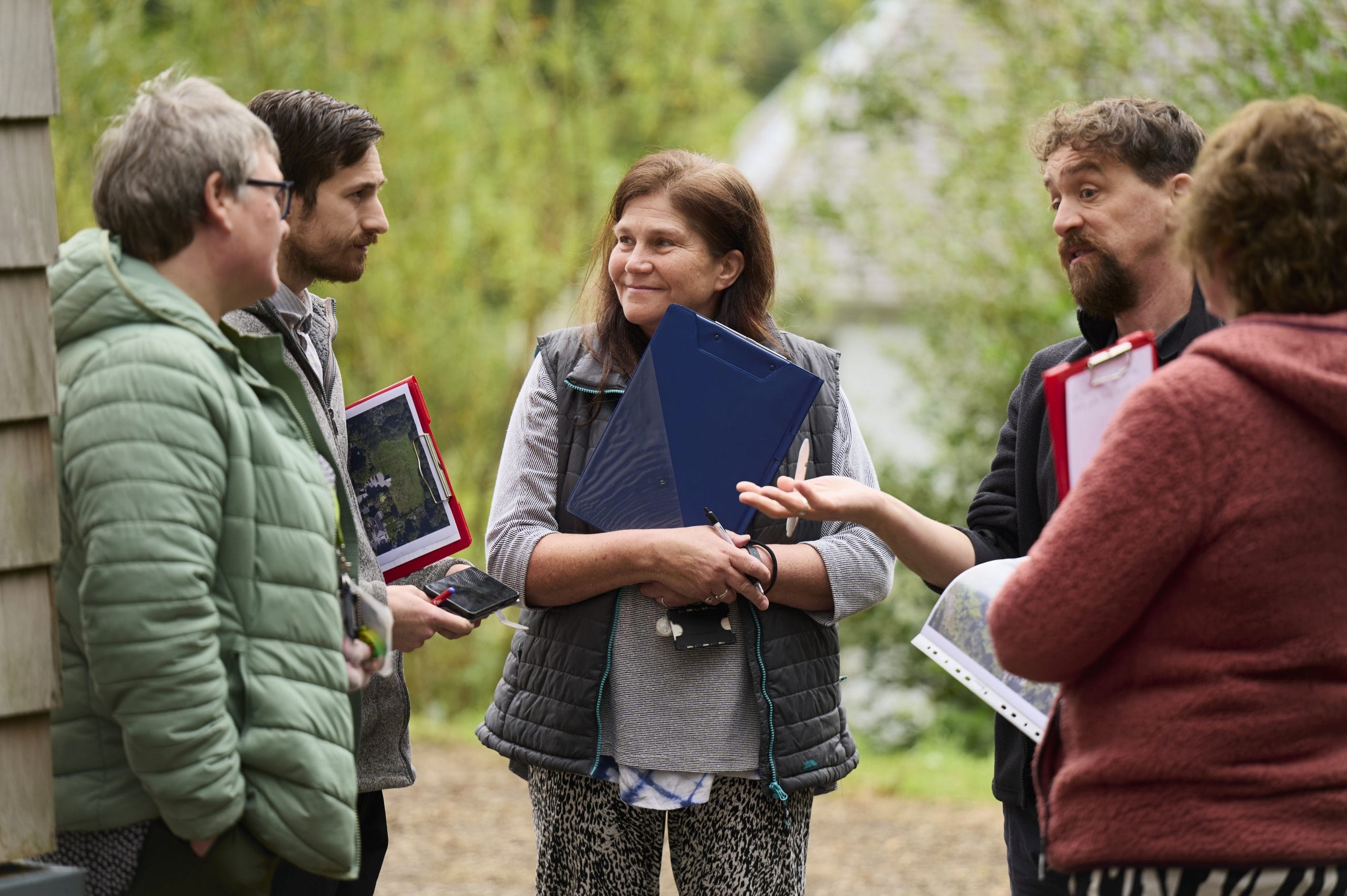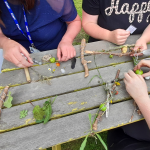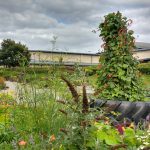What does the independent curriculum review and the government’s response say about outdoor learning?
Mary Jackson, our Head of Education, spent last Wednesday poring through the 197-page review, and the DfE’s response. Here, she lays out requirements and opportunities for outdoor learning.
In July 2024, the government commissioned an independent review of the curriculum, assessment and qualifications system in England. Last week, its recommendations were published in the final report, and alongside them the government’s response — a plan for the new curriculum that will be delivered in 2027.
Earlier this year, LtL responded to the Interim Report, reflecting our hopes for the new curriculum. Now, Mary Jackson reviews the outcomes of the final report. First, here’s a quick overview of the key points:
- Fieldwork benefits are highlighted for geography. We’d love to see fieldwork in other subjects too.
- Teacher autonomy is underlined in making learning accessible for all. Teachers have the autonomy to take teaching outdoors, which benefits accessibility in so many ways.
- Climate change education is bolstered in more subjects and for all ages — we’d love to see teachers make the most of their outdoor spaces to link global climate change to local effects and adaptations.
- Sustainability is added to the Design and Technology curriculum.
- The National Education Nature Park is recognised as a good ongoing project.
- Enrichment activities are listed under five headings, all of which could have elements taught outdoors.
Evolution, not revolution
Throughout the process of the Curriculum and Assessment Review in England, Professor Becky Francis, chair of the review panel, has said the change to the national curriculum in England will be “an evolution not a revolution” and this is reflected in the recommendations in the panel’s report.
What is already being done well in schools is celebrated, while the panel has listened and responded to the more than seven thousand individuals and organisations, including teachers and pupils, and us at Learning through Landscapes (LtL), to learn about what they felt could be done better.
Fieldwork in geography
At LtL, we believe that outdoor learning should be a key part of every child’s education and we are therefore pleased that the benefits of fieldwork are highlighted in relation to the geography curriculum (including decision-making, data collection and analysis, and problem-solving). What a shame it isn’t named as an essential part of other curriculum areas too.
Teacher autonomy
Teacher confidence is integral to outdoor learning, so we are encouraged by the emphasis on making learning accessible to all pupils whilst valuing the importance of teachers’ professional autonomy. We believe this will allow many teachers to find ways to take their learning outside across the curriculum — reaching all pupils, including those at greatest disadvantage, through creative and responsive teaching strategies outdoors.
Climate change education
As a result of the recommendations, climate change will be bolstered in the geography, science and citizenship curricula, with the latter to be taught at both primary and secondary levels. As the report says, “It is important to note that curriculum content is only one part of the issue: pedagogy has an important role in applying an engaging climate lens to existing curriculum content.”
We therefore encourage teachers to use the pedagogy of outdoor learning/fieldwork to help their pupils not only understand the impacts of climate change but to see how they can make a difference in response.
We are also pleased to see sustainability added into the Design and Technology curriculum, providing just one approach to ways climate change adaptation could be addressed outside.
Nature Park: a success story
The report and the DfE’s response do not go so far as to say that climate education should be delivered right across the curriculum, but the DfE does reference the National Education Nature Park and the wide range of curriculum resources, across many different curriculum subjects, that are available through the project website and which incorporate outdoor learning/fieldwork.
As a delivery partner for the Nature Park, we are delighted that the department has drawn upon this project as an example of how to deliver a coherent and quality learning programme that:
- involves experiential learning outdoors in the school grounds; and
- links to climate education.
Our experience, and much research, shows that as well as curriculum subjects, there are key topics such as climate and sustainability that are best taught with agency and authenticity, and with local and intergenerational influences. For many years we have espoused this approach, which you can explore in depth through our outdoor learning training courses, including our Lead Teacher in Outdoor Learning course or our online courses.
Enrichment activities
Both the original report and the DfE’s response emphasise the importance of enrichment activities in schools. The report links outdoors to PE and adventurous activities through enrichment. The DfE’s report adds detail with five enrichment headings, and we see all of their five headings as providing potential for outdoor learning, play, and other activities.
The obvious place for outdoor activities comes under the heading of ‘Nature, outdoor and adventure’ where the DfE lists, “time outdoors, climate education and sustainability projects, gardening, residentials and camps” as ways to deliver this aspect of enrichment. We’d like to see ‘play’ in that list too.
The four other activities categories also allow for outdoor learning and play. Consider making decisions about how your school grounds can be developed under the heading ‘Civic engagement’; there is no reason ‘Arts and culture’ only need to take place inside whilst many ‘Sport and physical activities’ naturally take place outdoors. And through the outdoors, pupils can also be ‘Developing wider life skills’, from cooking over a fire to debating what changes they want to make to their grounds.
As we move towards the first delivery of the curriculum in 2028, LtL will continue to support schools as they develop ways to take elements of learning, play and enrichment outside, along with all the other benefits that this will bring for wellbeing, attainment, and more.
Make sure to sign up to our newsletter to stay up to date with the latest school grounds, outdoor learning and play news. If you’re seeking help with taking your outdoor space further, our expert team can provide advice and support through our advisory visit service for schools and early years settings, as well as our outdoor learning and play training.











